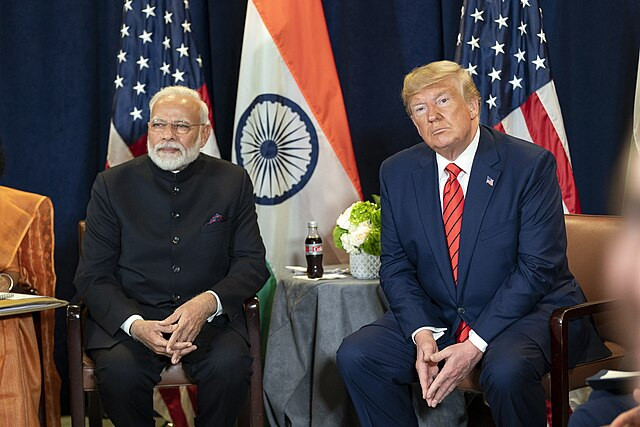President Donald Trump escalated his tariff campaign by doubling duties on imports from India to 50%, a move that places New Delhi among the hardest-hit U.S. trading partners and risks driving up costs for American consumers.
The tariff increase, which took effect Wednesday, comes just weeks after Trump imposed a 25% baseline tariff on Indian goods. The White House said the measure targets India's purchases of Russian oil, which Washington argues help finance Moscow's war in Ukraine.
India has condemned the action, accusing the administration of applying selective penalties. New Delhi has noted that other major buyers of Russian oil, including China, are not facing the same tariff burden. Indian officials have signaled they could retaliate with duties on American oil, chemicals, and aerospace products, which represent some of the largest U.S. exports to India.
Trade talks between Washington and New Delhi that were expected to begin this week have been canceled, according to the BBC, narrowing the prospects for de-escalation. The collapse of negotiations comes as both governments weigh further steps that could destabilize one of the fastest-growing trade relationships in the world.
Prime Minister Narendra Modi responded with a domestic rallying cry, urging citizens to shift purchasing habits. "No matter how much pressure comes, we will keep increasing our strength to withstand it," Modi said during a speech in Ahmedabad. He told Indians that "whatever we buy must be made in India," underscoring a push for economic self-reliance. Earlier this month, he declared: "We must become self-reliant - not out of desperation, but out of pride."
The U.S. imported $87 billion worth of goods from India last year, compared with $42 billion in American exports to India, according to Commerce Department figures. Pharmaceuticals, apparel, and communications equipment - including smartphones, which are exempt from the new reciprocal tariff regime - accounted for a large share of U.S. imports.
American exports to India include oil and gas, chemicals, and aerospace parts, sectors that could be hit if New Delhi responds with its own tariffs. Analysts said the combination of higher import costs in the U.S. and the risk of retaliation abroad could deepen economic headwinds already straining American businesses.
- U.S. imports from India (2023): $87 billion
- U.S. exports to India (2023): $42 billion
- Deficit: $45 billion






